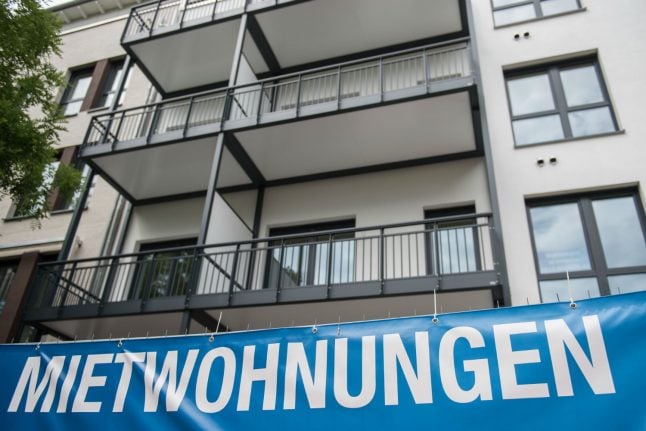Once described as “poor, but sexy”, Berlin has seen its housing costs
double over the last decade as employees lured by the strong job market move into the city.
The sharp rent hikes have led some residents to ponder radical solutions, including pushing for the seizure of housing stock from powerful landlords.
Alarmed by the trend, Berlin's city government agreed Tuesday on the outlines of a draft law that would include a temporary freeze on rents for five years from 2020, with a bill now to be drafted.
SEE ALSO: Berlin poised to freeze rental prices for five years
The cap means “protection against rent increases for 1.5 million apartments,” tweeted the Berlin government's department for urban development and housing.
The cap comes amid skyrocketing rents. The average rent prices in Berlin have pushed past €10 per square metre per month, according to a recent study by a real estate group CBRE Berlin and German mortgage bank Berlin Hyp AG.
SEE ALSO: Berlin rents rise above record €10 per square metre
The following graph, prepared for The Local by Statista, breaks down the cost of Berlin district by district.

Under the plan, landlords who seek to raise rates because of renovation work will also have to seek official approval for any increases above 50 cents per square metre.
Only social housing and private property that has not been let out would be exempt.
The move, by Berlin's coalition government of the centre-left SPD, the Greens and far-left Linke party, is being closely watched across Germany, where a backlash is growing over fears that residents are being priced out of key cities.
In an indication that the Berlin example could snowball into something wider, the SPD, which is also the junior coalition partner in Chancellor Angela Merkel's federal coalition, has pledged to champion such rent controls nationwide.
“We need a rent price cap for all of Germany,” said Thorsten Schäfer-Gümbel, one of the three interim SPD leaders.
He argued that the measure would help “win time to build, build and build”.
The SPD's stance however puts it on a collision course with Merkel's centre-right bloc, piling pressure on their already fragile partnership.
Merkel herself has voiced scepticism about such caps, warning that “we must also provide an environment for people to want to build”.
“It must remain advantageous and attractive to invest in residential property.”
'Raise rents now'
While the political climate in Berlin is turning against landlords, the influential property-owners association Haus und Grund has said it would not be cowed.
In a clear call for pre-emptive action, the association had urged members
to raise rents by Monday night (June 17th).
Haus und Grund chairman Carsten Brückner told public broadcaster Inforadio that the planned policy “makes no distinction between very large landlords and small private property owners who do not behave irresponsibly with rents and modernization”.
The situation in the German capital has become all the more acute since the end of the Cold War and reunification, becoming a tourism and party hotspot as well as an investment magnet.
Although there are still huge swathes of unbuilt land and new construction mushrooming across the city, much of what is coming onto the market is out of reach for low-income locals.
The rates in Berlin are still below those in key capitals around the world.

Graph translated for The Local by Statista. Photo: DPA
The rental freeze debate comes as residents are trying to seize the initiative by pushing for a referendum to seize buildings from landlords with more than 3,000 apartments.
On Friday, the initiators of the citizens' vote said they had cleared the first hurdle by obtaining 77,001 signatures — more than three times higher than the 20,000 needed to launch such a referendum.
For the Tagesspiegel newspaper, the trend of runaway rents and growing revolt grew out of from the government's failure to tackle the problem.
“If the rental cap splits the government, then that's something that it brought upon itself: because for far too long, far too little has been built. But the call for new construction alone won't help.”



 Please whitelist us to continue reading.
Please whitelist us to continue reading.
Member comments